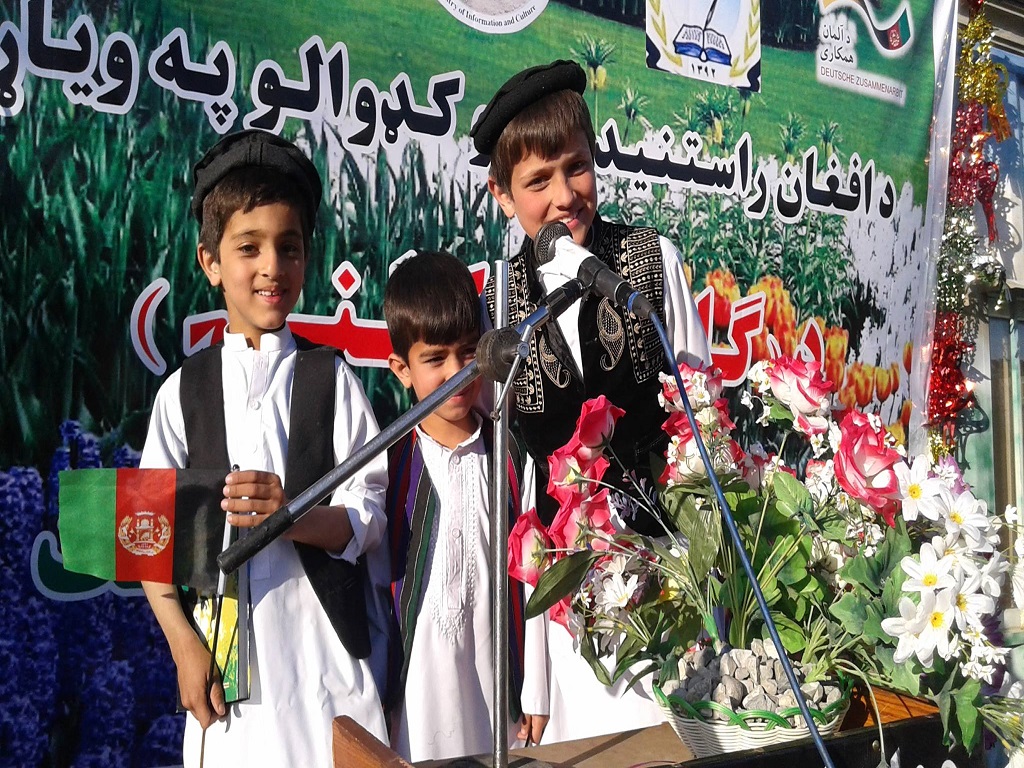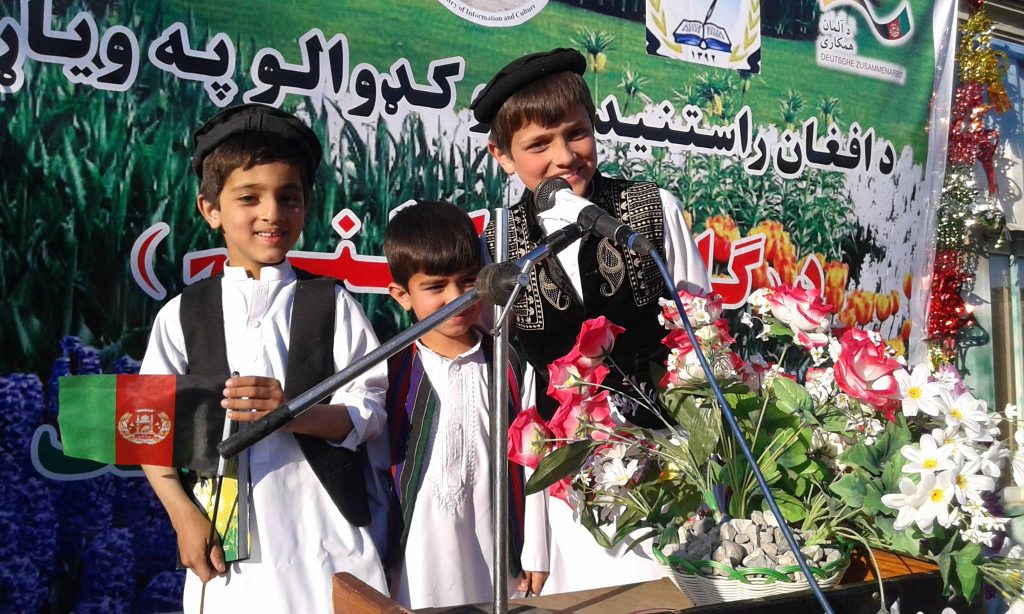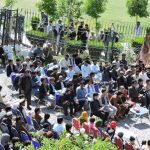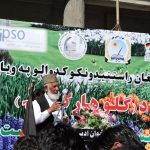Golo-Har, (the Anadem of Flowers) was the name of a socio-cultural event conducted by Nangarhar Social Cultural Container. The event was held to welcome families who had returned from Pakistan to Afghanistan. Many of these returnees were originally from neighbor provinces. They had left their homes many years ago due to war, insecurity and unemployment and went to Pakistan or Iran.
About 300 people took part in the event, 55% of them were returnees. We started the event with a poetry session as people in Nangahar like poetry very much. The poems were about emigration, unity and compassion, which prompted immediate attention to the problems and challenges of the returnees. The returnees were given the opportunity to share their feelings, pains and their suffering with the other people. And for the first time in Nangarhar two female participants recited their poetry in front of the audience, which welcomed them with warm appreciation.
In his speech, the Provincial Director of Information and Culture Department asked the people to help the returnees to find access into Nangarhar’s society. One of the elders welcomed the returnees and promised that they will help them in their own ways to become part of the community: “We are unfamiliar with them and so they are with us, probably also with our culture and customs. The problem of unfamiliarity, limitation of jobs and facilities, brings conflicts and misunderstanding between different communities. But when we chose to talk and to help each other, I think we can handle such a problem. It is our religious and human responsibility to help everyone who needs our assistance”.
One of the participants told us what he had realized during this event: “We have to host thousands of people who have returned from Pakistan, Iran and European countries. We alone cannot handle this problem, and our government is not in the position to manage it properly. It is our collective responsibility and our religious obligation to help our brothers and sisters.”
At the end “Kite Running” activities were initiated to entertain the participants. We bought kites with different colors and designs and gave it to the teenagers who were familiar with the game. We choose one person from the returnees and one from the local people to make a team in a way which one should hold the thread and another should make the kite fly. The teams were asked to write their favorite message about the integration of returnees on the kite and then let their kite fly in the sky. On some of the kites were written: “Here or there, we are together”, “We are brothers”, “For a better future, we work together”.














